
Ngaraard: A Hidden Gem in Palau
Nestled in the northern part of Babeldaob Island, Ngaraard offers an authentic Palauan experience away from the more tourist-heavy areas. This serene city is known for its lush landscapes, traditional villages, and pristine beaches. As you explore Ngaraard, you'll find a perfect blend of natural beauty and cultural heritage. One of the highlights of Ngaraard is its stunning coastline, where you can relax on white sandy beaches and swim in crystal-clear waters. The beaches are often quiet, providing a peaceful retreat for those looking to escape the hustle and bustle of daily life. The waters are also ideal for snorkeling, allowing you to discover vibrant marine life just a few meters from shore. Ngaraard is also rich in history and culture. The traditional villages here offer a glimpse into the local way of life, with beautifully preserved bai (meeting houses) that showcase Palauan architecture and craftsmanship. Don't miss the opportunity to interact with the friendly locals and learn about their customs and traditions. For those who love the great outdoors, Ngaraard is home to several scenic hiking trails. These trails wind through dense forests and lead to breathtaking viewpoints, where you can take in panoramic vistas of the island. Along the way, you may encounter rare bird species and other wildlife, making it a paradise for nature enthusiasts.
Local tips in Ngaraard
- Bring reef-safe sunscreen to protect the marine life while enjoying the beaches.
- Visit the traditional bai early in the morning to avoid the heat and crowds.
- Pack comfortable hiking shoes for exploring Ngaraard's scenic trails.
- Learn a few basic Palauan phrases to enhance your interaction with the friendly locals.
- Carry cash, as some small local shops may not accept credit cards.
When is the best time to go to Ngaraard?
Iconic landmarks you can’t miss
Belau National Museum
Discover the rich history and vibrant culture of Palau at the Belau National Museum, a must-visit tourist attraction in Koror.
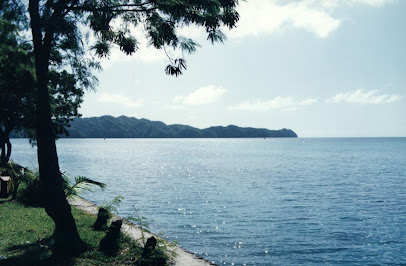
Ngardmau Waterfalls
Explore the breathtaking Ngardmau Waterfalls in Palau, a stunning natural attraction surrounded by lush rainforest and serene beauty.
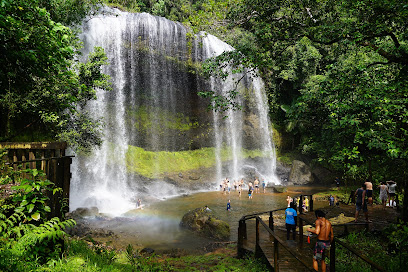
Japan-Palau Friendship Bridge
Explore the Japan-Palau Friendship Bridge, where stunning views meet cultural significance, creating an unforgettable experience in Palau.
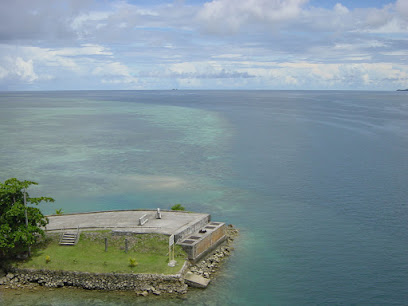
Palau Aquarium
Explore the breathtaking marine life of Palau at the renowned Palau Aquarium, a top tourist attraction showcasing vibrant biodiversity and conservation efforts.
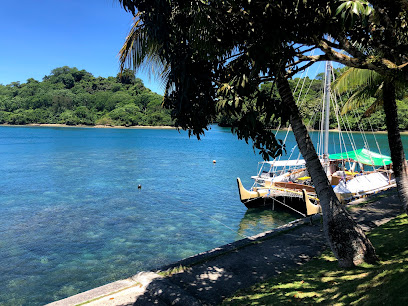
Badrulchau Stone Monoliths
Explore the Badrulchau Stone Monoliths in Ngarchelong, Palau, where history meets natural beauty in a captivating archaeological experience.
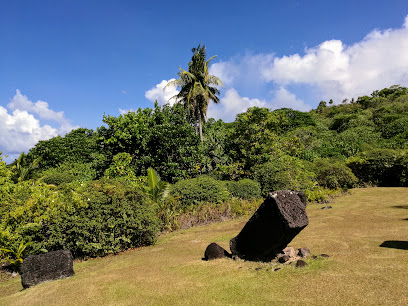
Palau National Capital
Explore the Palau National Capital, a stunning blend of modern governance and traditional culture in the heart of the Pacific.
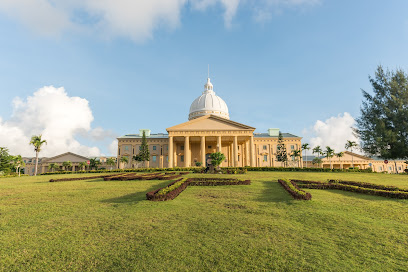
Airai Bai
Explore Airai Bai, a stunning cultural landmark in Palau, where traditional craftsmanship meets breathtaking natural beauty.
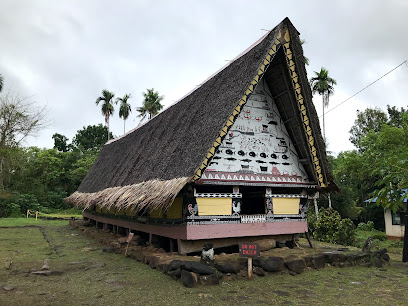
Chandelier Cave
Explore the stunning Chandelier Cave in Palau, a natural wonder with mesmerizing limestone formations and vibrant marine life.
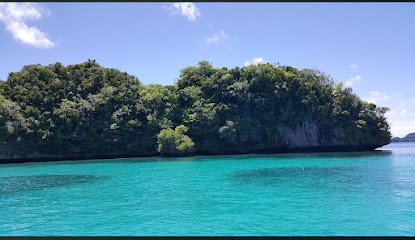
Ucheliungs
Explore Ucheliungs: A Natural and Cultural Gem in Koror, Palau, Offering Stunning Landscapes and Unique Experiences.
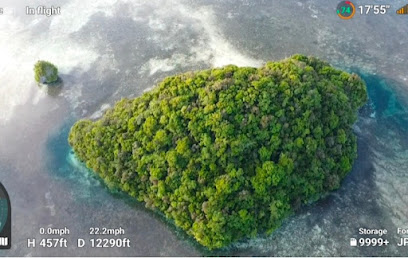
Ngerchelchuus
Discover the breathtaking beauty of Ngerchelchuus, a premier hiking area in Palau that offers stunning views and diverse wildlife for an unforgettable adventure.
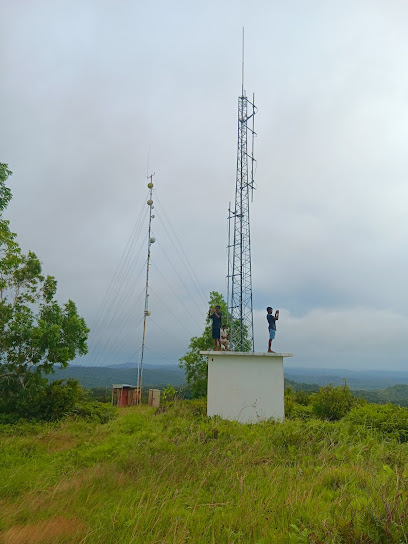
Palau oldest stone carvings
Uncover the rich history of Palau at its oldest stone carvings, where ancient artistry meets breathtaking landscapes.
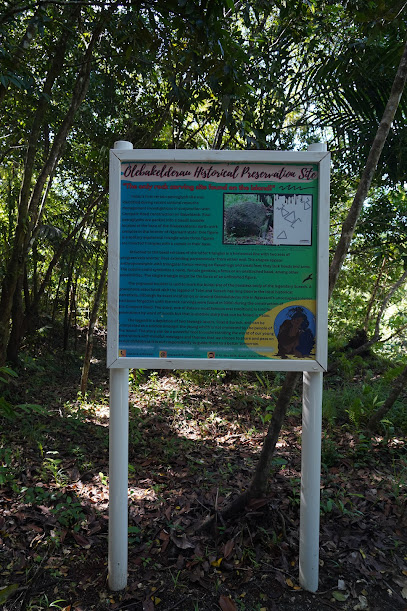
Ngaraard State Office
Discover the essence of local governance at Ngaraard State Office, the heart of public service in Palau's Ngaraard region.
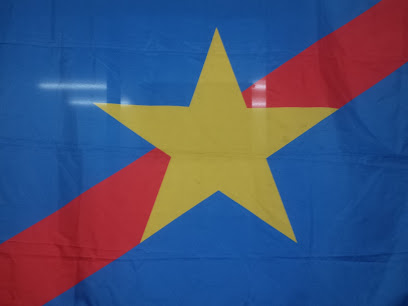
Bai er a Ngeruau Historic Site
Explore Bai er a Ngeruau Historic Site in Ngaraard, Palau, where history and natural beauty converge for an unforgettable cultural experience.
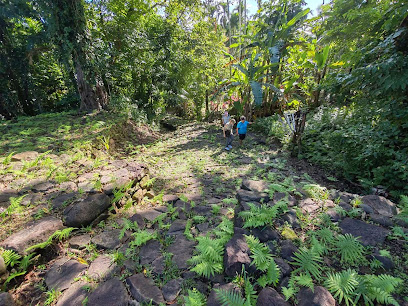
Ngesang Ngaraard
Experience the tranquil charm of Ngesang Ngaraard, a unique housing complex in Melekeok, Palau, where culture meets stunning natural beauty.

Odalmelech Historic Site
Explore the ancient wonders of Odalmelech Historic Site in Melekeok, Palau, a cultural landmark steeped in history and tradition.

Unmissable attractions to see
Milky Way
Explore the breathtaking beauty of Milky Way in Koror, Palau, where the stars shine bright and nature's tranquility awaits.
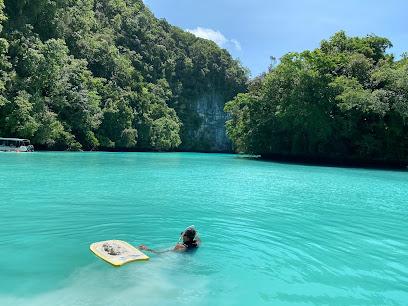
Belau National Museum
Discover Palau's vibrant heritage at the Belau National Museum, where history, culture, and art converge in a captivating experience.
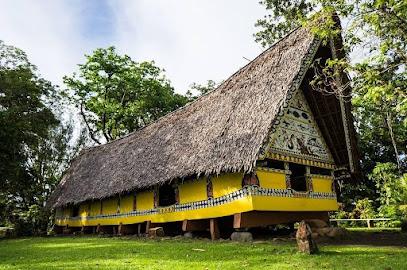
Island Paradise Resort Club
Experience the tranquility of Island Paradise Resort Club in Palau, where luxury meets nature and adventure awaits at every turn.
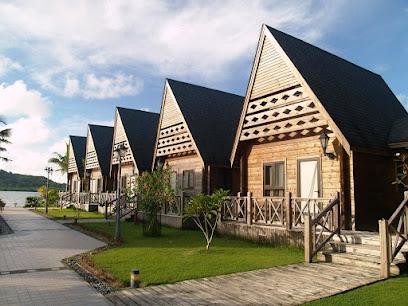
Etpison Museum
Explore the Etpison Museum in Koror, Palau, and immerse yourself in the rich culture and history of the Palauan people.
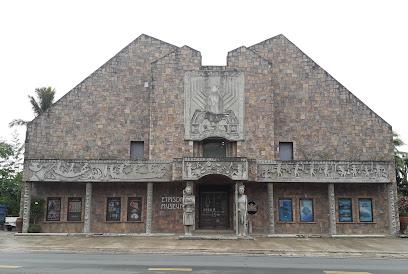
Neco Marine Palau
Dive into the stunning underwater world of Palau with Neco Marine, your gateway to unforgettable scuba adventures and marine exploration.
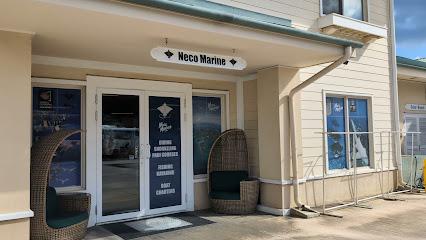
Shipwreck
Explore the Shipwreck in Palau, a must-visit destination combining history and stunning marine life in an enchanting tropical setting.
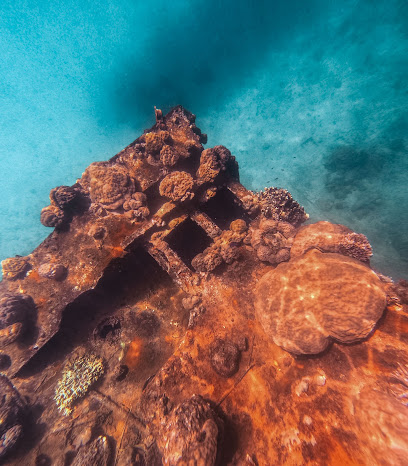
Main street
Experience the vibrant culture and scenic beauty of Main Street in Kayangel, where local charm meets tropical paradise.
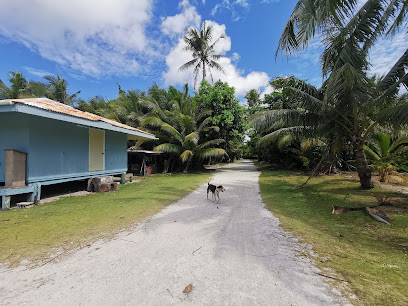
Ngerkal Lake Conservation Area
Discover the tranquil beauty and cultural richness of Ngerkal Lake Conservation Area in Ngaraard, Palau - a must-visit destination for nature lovers.

Hatobohei
Experience the untouched beauty and tranquility of Hatobohei, a hidden gem near Palau, perfect for nature lovers and adventure seekers.
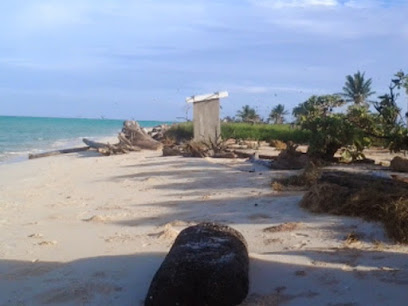
Kebun Durian Hisam Bin Mustafa
Explore the exotic tastes of Kebun Durian Hisam Bin Mustafa in Melekeok, Palau - a paradise for durian lovers and tropical fruit enthusiasts.

Ngemai Conservation Area
Explore the serene Ngemai Conservation Area, a hidden gem in Palau, perfect for nature lovers and adventure seekers alike.
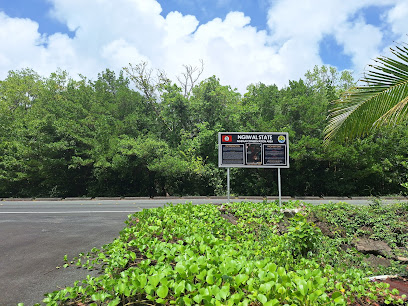
Essential places to dine
Drop Off Bar and Grill
Discover the vibrant flavors of Palau at Drop Off Bar and Grill, where delicious food meets stunning island views.
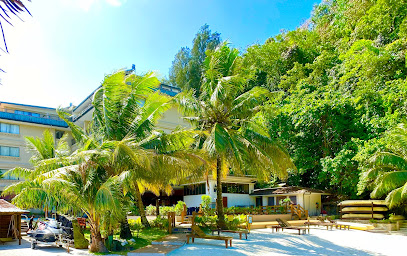
The Taj
Discover authentic Indian cuisine at The Taj in Koror – where every dish tells a story and flavors come alive.
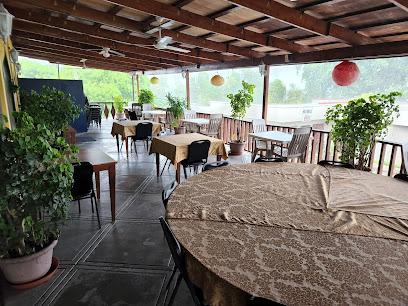
Elilai Seaside Dining
Experience exquisite cuisine with breathtaking ocean views at Elilai Seaside Dining in Koror, Palau - where every meal is a celebration.
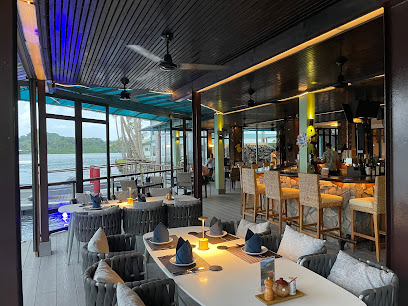
Tori Tori
Experience authentic Japanese flavors at Tori Tori in Koror, Palau – where every dish tells a story of tradition and taste.
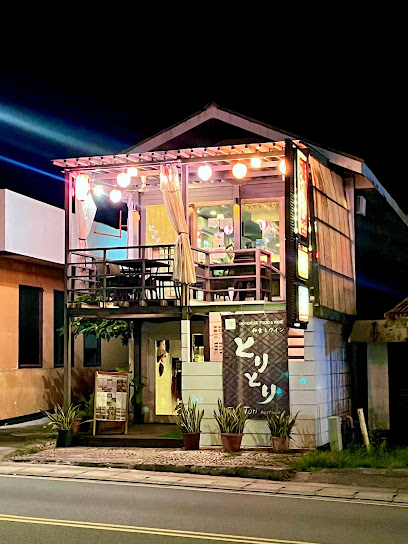
The Canoe House
Discover vibrant flavors at The Canoe House in Koror - where delicious food meets lively entertainment in the heart of Palau.
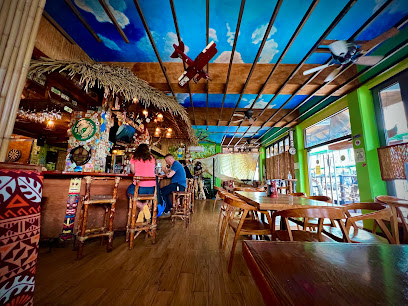
Rock Island Cafe
Experience the rich flavors of Palau at Rock Island Cafe—a culinary treasure in Koror offering stunning views and delicious local dishes.
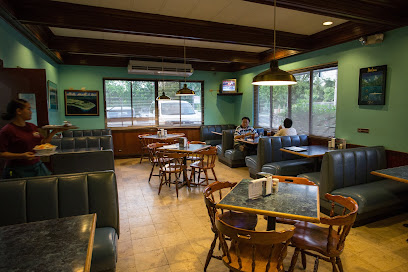
Coffee Berry
Discover authentic Palauan cuisine at Coffee Berry, a cozy cafe in Koror serving delicious country food and local delicacies.
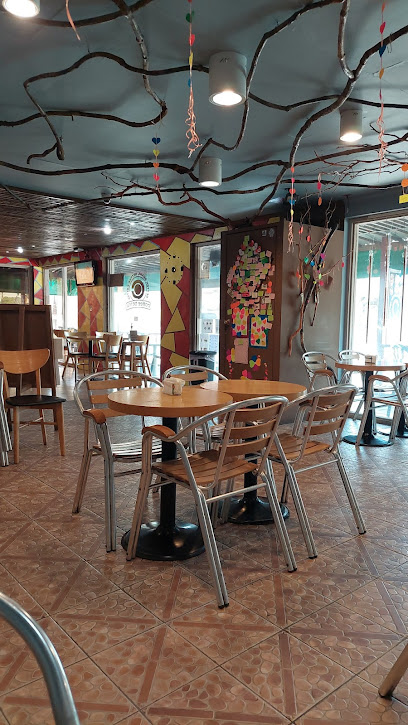
Palm Bay Bistro
Discover exceptional Pan Asian cuisine at Palm Bay Bistro in Koror - where every meal is an unforgettable experience amidst stunning views.
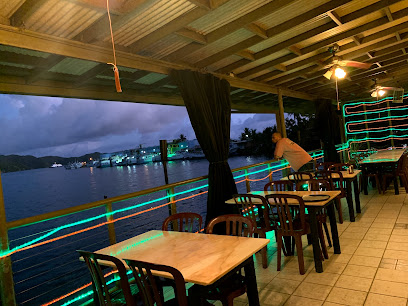
Suriyothai
Experience authentic Thai cuisine at Suriyothai in Koror, Palau - a culinary journey through rich flavors and delightful dishes.
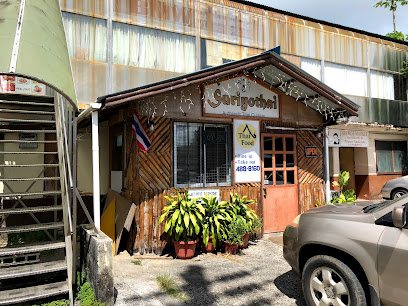
Carp Restaurant
Discover authentic Palauan flavors at Carp Restaurant in Koror - a cozy spot where local cuisine meets friendly service.
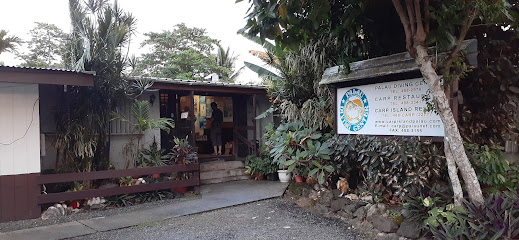
7 Eat Restaurant
Experience authentic Palauan cuisine at 7 Eat Restaurant in Koror - where every meal tells a story.
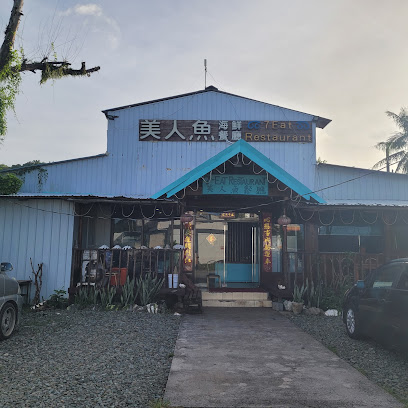
Palau Umi Korean and Japanese Cuisine
Savor authentic Korean and Japanese flavors at Palau Umi in Koror - a delightful culinary destination for all food lovers.
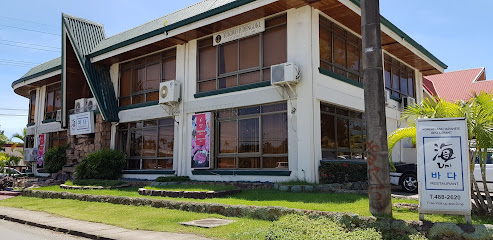
Okemii Deli & Internet Cafe
Experience local flavors at Okemii Deli & Internet Cafe in Koror – where delicious food meets community spirit!
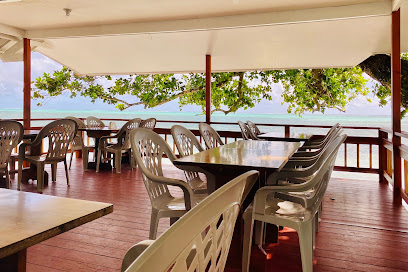
Red Rooster Cafe
Experience authentic Palauan flavors at Red Rooster Cafe in Koror - where culinary delights meet tropical charm.
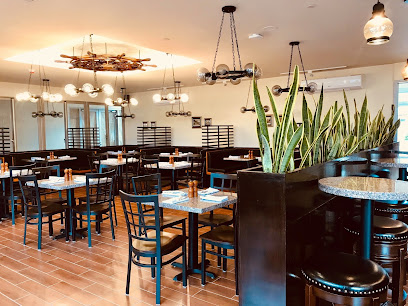
King Palace
Experience the rich flavors of Palauan cuisine at King Palace – where tradition meets taste in Koror.
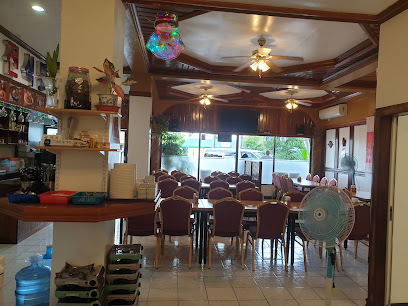
Markets, malls and hidden boutiques
L'Amarena Gelato Shop (Gelateria Italiana)
Savor the finest Italian gelato at L'Amarena Gelato Shop in Palau, where every scoop is a delicious escape into flavor.
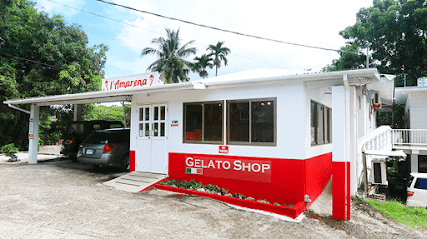
WCTC Shopping Center
Explore the WCTC Shopping Center in Koror, Palau, a vibrant shopping and dining destination blending local culture with international brands.
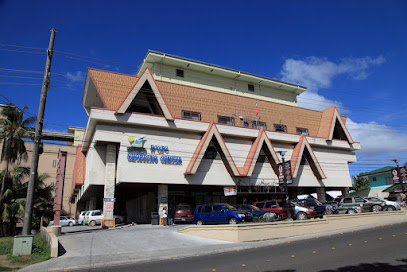
Surangel and Sons Co. - Koror
Experience the heart of Palau at Surangel and Sons Co., a vibrant shopping hub in Koror with local crafts, cuisine, and cultural experiences.
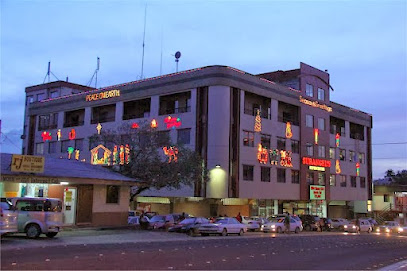
Bubble Tea Shop
Discover the refreshing flavors of bubble tea at the Bubble Tea Shop in Koror, Palau - a must-visit for tea lovers and adventurers alike.
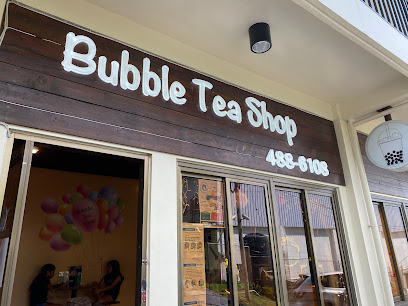
Rur Gift Shop & Cafe
Explore Rur Gift Shop & Cafe in Koror for unique Palauan souvenirs and delicious local snacks in a welcoming atmosphere.
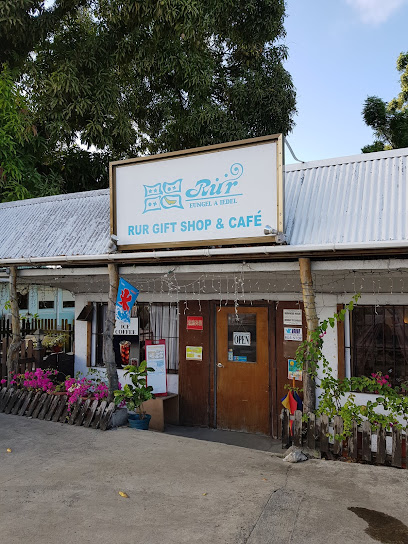
Payless Market
Explore the flavors of Palau at Payless Market, your go-to grocery store in Koror for local and international products.
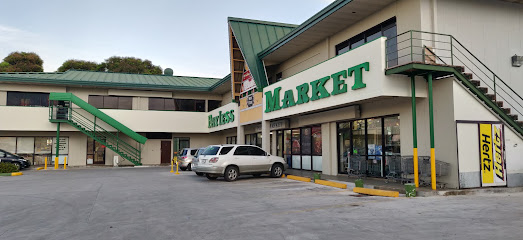
Ben Franklin Department Store
Explore the vibrant Ben Franklin Department Store in Medalaii, Koror, where local culture meets modern shopping.
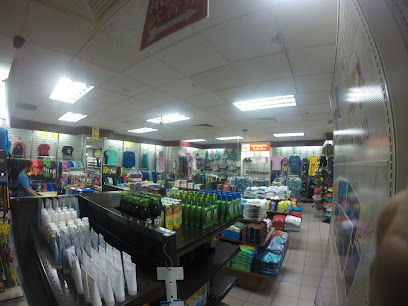
EXILE
Discover stylish clothing at EXILE in Koror, Palau, where fashion meets the island lifestyle. Explore unique designs and local flair for every occasion.
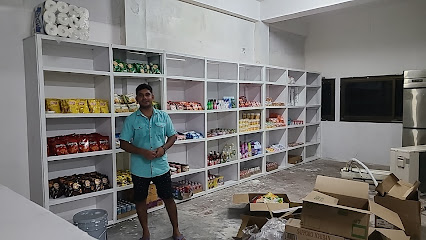
Amel Store
Discover the vibrant flavors of Palau at Amel Store, your go-to grocery haven for fresh produce and local goods.
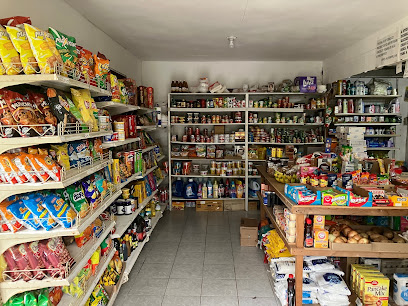
Wilson's Store
Discover local flavors and essentials at Wilson's Store, your go-to grocery shop in Ngermid, Koror, Palau, open daily from 6 AM to 10 PM.
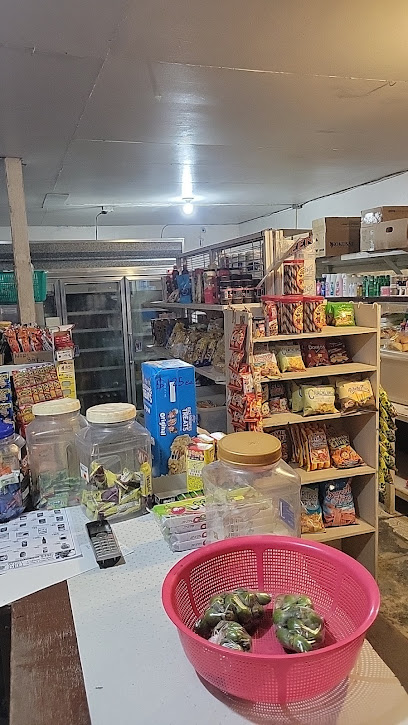
Globus Palau
Explore Globus Palau in Koror for a unique shopping experience featuring local crafts, home goods, and vibrant Palauan culture.
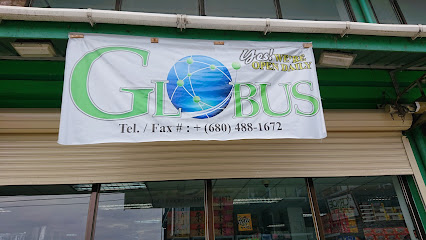
Lius Gift Shop
Explore Lius Gift Shop in Koror for unique souvenirs, local fashion, and delicious cookies, all embodying the vibrant spirit of Palau.
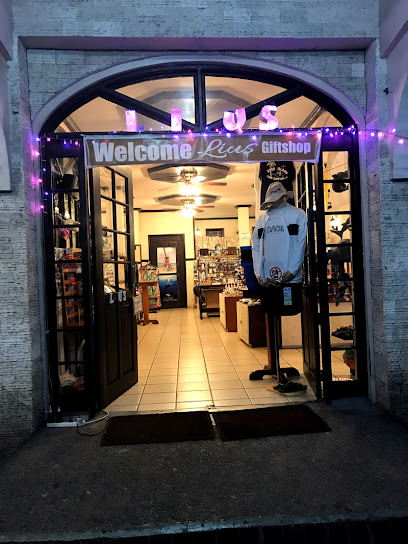
E&A Store
Discover E&A Store in Melekeok, Palau - a vibrant shopping mall offering local crafts, souvenirs, and essentials for every traveler.
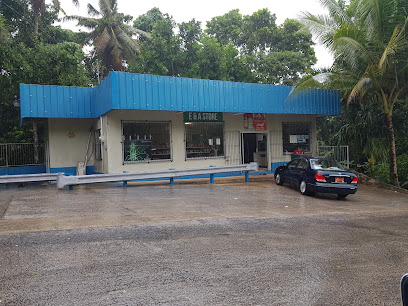
Palau Central Trading Co.
Discover unique gifts and local artistry at Palau Central Trading Co. in Koror, a must-visit for every traveler seeking souvenirs from paradise.
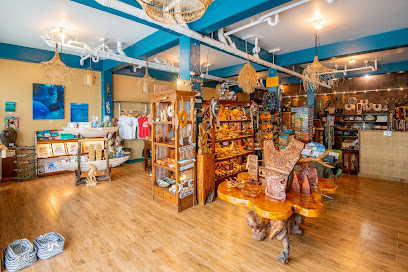
Long Beach
Explore the vibrant offerings at Long Beach, your essential stop for groceries, deli delights, and local treats in the heart of Palau.
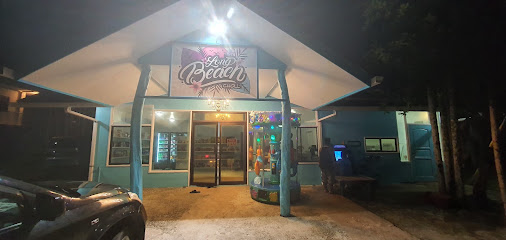
Essential bars & hidden hideouts
Drop Off Bar and Grill
Experience the vibrant flavors and stunning views at Drop Off Bar and Grill, a culinary gem in Koror, Palau offering a delightful dining experience.
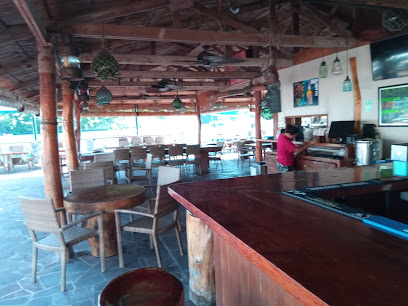
The Canoe House
Discover vibrant nightlife and delicious cuisine at The Canoe House, a top bar and restaurant in Koror, Palau, perfect for tourists.
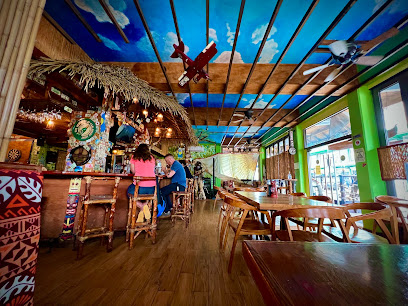
Red Rooster Cafe
Experience the best of Palauan and international cuisine at Red Rooster Cafe in the heart of Koror, a culinary gem for every traveler.
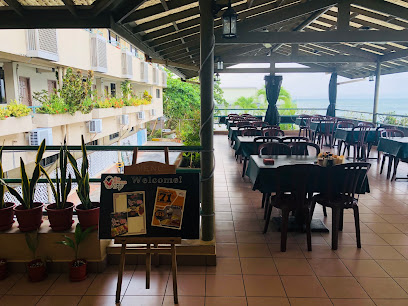
Krämer’s Bar and Restaurant
Discover the flavors of Palau at Krämer’s Bar and Restaurant, where local ingredients meet international cuisine in a warm and welcoming atmosphere.
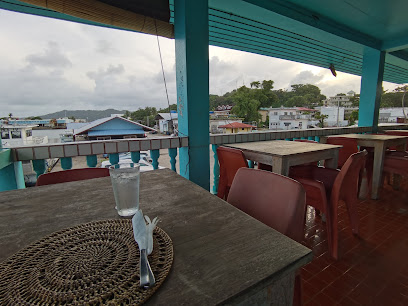
Riptide Beach Bar & Grill
Discover the vibrant charm of Riptide Beach Bar & Grill in Koror, Palau, where delicious cuisine meets stunning ocean views.
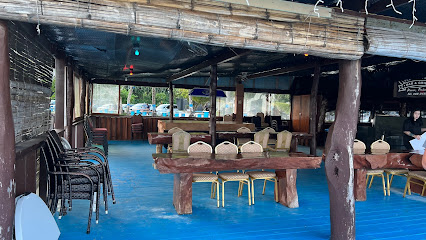
Barracuda Restaurant
Discover the vibrant flavors of Palau at Barracuda Restaurant, where fresh seafood and local ingredients create an unforgettable dining experience.
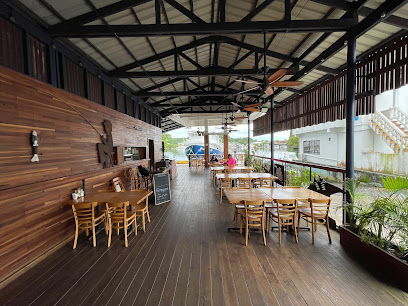
Hungry Marlin Restaurant & Bar at COVE Resort Palau
Discover the exquisite flavors of the Pacific at Hungry Marlin Restaurant & Bar, where fresh seafood meets stunning ocean views in Palau.
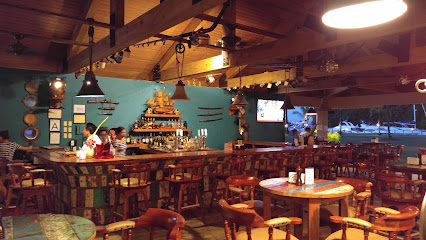
The Salad Bar
Discover a refreshing culinary experience at The Salad Bar in Koror, where health and flavor meet in every dish.
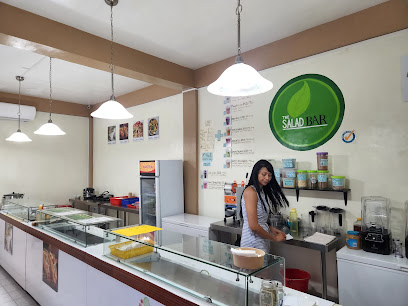
Executive Lounge
Experience the best of local and international flavors at the Executive Lounge in Koror, Palau. A serene dining escape with stunning views awaits you.
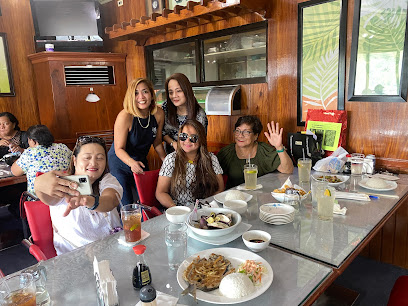
MisoHungry - PW
Discover the fresh flavors of sushi at MisoHungry, the top-rated sushi restaurant in Koror, Palau, where culinary artistry meets exceptional service.
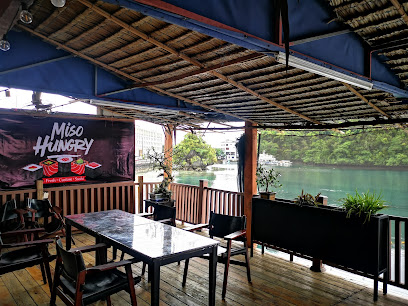
Bottom Time Bar and Grill
Discover the vibrant flavors of Palau at Bottom Time Bar and Grill, where fresh ingredients and stunning ocean views create an unforgettable dining experience.
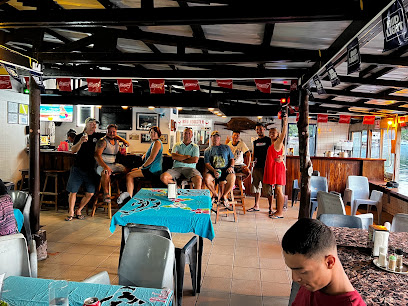
Jungle Bar
Experience the vibrant flavors of Palau at Jungle Bar, a tropical dining haven in Koror, perfect for relaxation and social gatherings.
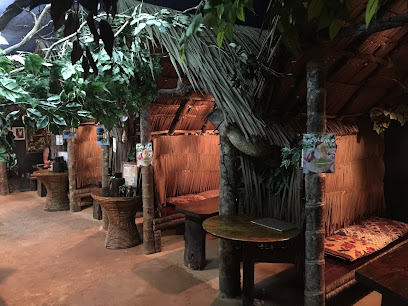
Weltz Bar at the Palasia Hotel
Experience tropical elegance at Weltz Bar in Palasia Hotel, Koror, where exquisite drinks meet a charming ambiance.
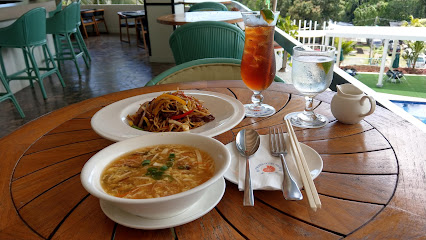
Club Gorgeous
Discover the lively nightlife of Club Gorgeous in Koror, Palau, where vibrant cocktails and entertainment await in a welcoming atmosphere.
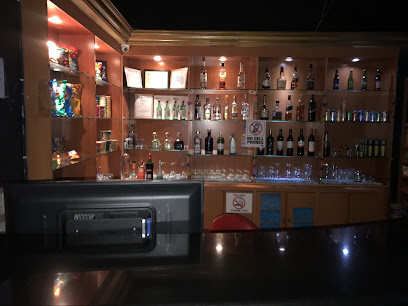
Local Phrases
-
- HelloAlii
[ah-lee] - GoodbyeKlairechar
[klai-re-char] - YesOmechell
[oh-meh-chell] - NoCheldecheduch
[chel-de-cheh-dooch] - Please/You're welcomeKmalt er a rengul
[k-malt er ah reng-ool] - Thank youSulang
[soo-lang] - Excuse me/SorryChomdasu
[chom-dah-soo] - How are you?Kede ousbech er kid
[keh-deh oos-bech er kid] - Fine. And you?Melechesei. E kemam
[mel-eh-cheh-say. eh keh-mam] - Do you speak English?Mosecha er a Belau
[moh-seh-chah er ah bel-ow] - I don't understandNg diak el kmo ngak
[ng dee-ahk el kmo ngahk]
- HelloAlii
-
- I'd like to see the menu, pleaseKau er a klou el debedebekii, kemiu
[kow er ah klow el deh-beh-deh-beh-kee, keh-mee-oo] - I don't eat meatNg diak el kau er a babier
[ng dee-ahk el kow er ah bah-bee-ehr] - Cheers!Chimol beluu
[chee-mole beh-loo] - I would like to pay, pleaseKemiu el kmo ng diak
[keh-mee-oo el kmo ng dee-ahk]
- I'd like to see the menu, pleaseKau er a klou el debedebekii, kemiu
-
- Help!Ngak a ngalek
[ngahk ah ngah-lehk] - Go away!Mla mo chodesui
[mla moh choh-deh-soo-ee] - Call the Police!Klukuk el meruul a ralm er a ked
[kloo-kook el meh-rool ah rahlm er ah ked] - Call a doctor!Klukuk el meruul a daob
[kloo-kook el meh-rool ah dah-ohb] - I'm lostNg diak el kmo meoud
[ng dee-ahk el kmo meh-ood] - I'm illNg diak el kmo mekekerei
[ng dee-ahk el kmo meh-keh-kehr-ay]
- Help!Ngak a ngalek
-
- I'd like to buy...Kau er a blil
[kow er ah bleel] - I'm just lookingNg di mle kau el mlai
[ng dee mle kow el mla-ee] - How much is it?Kau sebechel a kereker
[kow se-beh-chell ah keh-reh-kehr] - That's too expensiveA blik a kall
[ah bleek ah kahl] - Can you lower the price?Meng diak lekau el kall
[mehng dee-ahk leh-kow el kahl]
- I'd like to buy...Kau er a blil
-
- What time is it?Kede ousbech er kid
[keh-deh oos-bech er kid] - It's one o'clockAm omeleb a tekoi
[ahm oh-meh-lehb ah teh-koy] - Half past (10)Becheleu a klok
[beh-cheh-loo ah klohk] - MorningNgalek a babier
[ngah-lehk ah bah-bee-ehr] - AfternoonNgalek a meral di uchul a babier
[ngah-lehk ah meh-rahl dee oo-chuhl ah bah-bee-ehr] - EveningNgalek a meral mei
[ngah-lehk ah meh-rahl may] - YesterdayKemiu el kmo ng diak
[keh-mee-oo el kmo ng dee-ahk] - TodayA kmal meral di uchul
[ah k-mahl meh-rahl dee oo-chuhl] - TomorrowA kmal meral di elab
[ah k-mahl meh-rahl dee eh-lahb] - 1Reng
[reng] - 2Desu
[deh-soo] - 3Telu
[teh-loo] - 4Fa
[fah] - 5Limang
[lee-mahng] - 6Enem
[eh-nem] - 7Kedad
[keh-dahd] - 8Mesuub
[meh-soob] - 9Tebedil
[teh-beh-deel] - 10Uul
[ool]
- What time is it?Kede ousbech er kid
-
- Where's a/the...?Melekoi el chais er a...
[meh-leh-koy el chah-ees er ah...] - What's the address?Kede ousbech er a chelechang?
[keh-deh oos-bech er ah cheh-leh-chahng] - Can you show me (on the map)?Meng diak locha chodecheduch
[mehng dee-ahk loh-chah choh-deh-cheh-dooch] - When's the next (bus)?Kede ousbech er kau?
[keh-deh oos-bech er kow] - A ticket (to ....)Chelid el kmo ng techa
[chell-id el kmo ng teh-chah]
- Where's a/the...?Melekoi el chais er a...
History of Ngaraard
-
Ngaraard is home to the ancient stone monoliths of Badrulchau, which are believed to date back to around 100 AD. These towering stones are arranged in a mysterious pattern and are thought to have been part of a larger ceremonial or community structure. The site indicates the presence of an advanced and organized society that once thrived in the area.
-
Ngaraard has historically been an important region in the Palauan chiefdom system. It is known for its traditional governance structure, where local chiefs, known as 'Ibedul', played a crucial role in managing communal affairs and maintaining social order. The customs and rituals associated with the chiefdom system have been preserved and are still practiced in Ngaraard today.
-
During the early 20th century, Palau, including Ngaraard, fell under Japanese control following the defeat of Germany in World War I. The Japanese occupation lasted until the end of World War II and left a lasting impact on the region. Infrastructure developments, such as roads and schools, were established, and elements of Japanese culture were integrated into local life.
-
World War II brought significant changes to Ngaraard as it became part of the broader Pacific theater. The area saw military activity and the construction of strategic facilities. Remnants of wartime structures and relics can still be found in the region, serving as a somber reminder of the conflict that once engulfed the island.
-
After World War II, Ngaraard, along with the rest of Palau, entered a period of reconstruction under the administration of the United States as part of the Trust Territory of the Pacific Islands. This era saw the introduction of modern infrastructure, healthcare, and education systems. Ngaraard gradually transitioned from a traditional society to a more modern one while retaining its cultural heritage.
-
Ngaraard is renowned for its vibrant cultural festivals and the preservation of traditional practices. Events such as the annual 'Belau National Heritage Day' celebrate Palauan culture, including traditional dance, music, and crafts. The community takes great pride in maintaining these traditions, which are integral to their identity and social cohesion.
Ngaraard Essentials
-
Ngaraard is located in the northern part of Babeldaob Island in Palau. The nearest international airport is Roman Tmetuchl International Airport in Airai, approximately 50 kilometers away. From the airport, you can take a taxi or arrange for a rental car to drive to Ngaraard. The journey typically takes around an hour by road. There are no direct public transportation options from the airport to Ngaraard, so pre-arranged transportation is recommended.
-
Ngaraard is a relatively small area, and many of its attractions can be explored on foot or by bicycle. For longer distances, taxis are available, although it's advisable to negotiate the fare beforehand. Car rentals are an excellent option for those looking to explore the broader region at their own pace. Be aware that public buses do not frequently operate in this area, so planning your transportation in advance is important.
-
The official currency in Palau is the United States Dollar (USD). Credit cards are accepted in some hotels and larger establishments, but it is a good idea to carry cash, especially when visiting smaller shops and markets. ATMs are limited in Ngaraard, so withdrawing sufficient cash in Koror or at the airport is recommended before heading to Ngaraard.
-
Ngaraard is generally a safe destination for tourists. However, it is always advisable to take standard precautions such as avoiding isolated areas at night and keeping your belongings secure. There are no specific high-crime areas targeting tourists in Ngaraard, but staying vigilant and aware of your surroundings is always a good practice.
-
In case of emergency, dial 911 for immediate assistance. There are local clinics available for medical emergencies, but for more serious health concerns, you may need to travel to a larger medical facility in Koror. Ensure you have travel insurance that covers medical emergencies. For minor health issues, there are pharmacies where you can purchase over-the-counter medications.
-
Fashion: Do dress modestly, especially when visiting local villages and cultural sites. Avoid overly revealing clothing. Religion: Do respect local customs and traditions, particularly when visiting religious sites or attending local ceremonies. Public Transport: Do be respectful and courteous to drivers and fellow passengers. Don't expect punctuality as public transport schedules can be irregular. Greetings: Do greet people with a friendly 'Alii' (hello). A handshake is common, but a slight nod of the head is also appropriate. Eating & Drinking: Do try local delicacies and accept food offerings graciously. Don't refuse hospitality, as it is considered impolite.
-
To experience Ngaraard like a local, visit the local markets where you can buy fresh produce and traditional Palauan goods. Engage with locals, as they are often friendly and willing to share stories about the area's history and culture. Don't miss visiting traditional meeting houses (bai) and exploring the pristine beaches and hiking trails. For a unique experience, consider participating in a traditional Palauan fishing trip or a village tour to learn about local customs and practices.
Trending Landmark in Ngaraard
-
Belau National Museum
-
Ngardmau Waterfalls
-
Japan-Palau Friendship Bridge
-
Palau Aquarium
-
Badrulchau Stone Monoliths
-
Palau National Capital
-
Airai Bai
-
Chandelier Cave
-
Ucheliungs
-
Ngerchelchuus
-
Palau oldest stone carvings
-
Ngaraard State Office
-
Bai er a Ngeruau Historic Site
-
Ngesang Ngaraard
-
Odalmelech Historic Site
Nearby Cities to Ngaraard
-
Things To Do in Ngardmau
-
Things To Do in Melekeok
-
Things To Do in Ngerulmud
-
Things To Do in Ngaremlengui
-
Things To Do in Ngchesar
-
Things To Do in Ngatpang
-
Things To Do in Airai
-
Things To Do in Koror
-
Things To Do in Koror Town
-
Things To Do in Yap
-
Things To Do in Siargao
-
Things To Do in Davao City
-
Things To Do in Camiguin
-
Things To Do in Cagayan de Oro
-
Things To Do in Bohol



